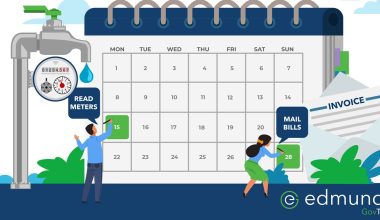We had a new customer go live last week and, interestingly, they don’t accept cash payments in their office.
This seemed odd at first, but the more I thought about it, the more it made me wonder –would this be a good move for other utilities?
Transitioning to not accepting cash
This customer is not located in a downtown area and, therefore, doesn’t have as many walk-in cash payments as some utility offices. Since they adopted the no cash policy, customers who would otherwise pay in cash are required to purchase a money order.
They experienced a few complaints at first, but otherwise it’s been a smooth transition. Signs in the lobby alert new customers of the no cash policy and a message on their bills reminds customers each month.
Advantages of not accepting cash
Not accepting cash eliminates the possibility of cash overages and shortages and saves time that would otherwise be required to count and balance a cash drawer each day.
This utility deposits checks using remote deposit capture, so not accepting cash means they have no reason to make a bank deposit. This saves the time involved in preparing the deposit as well as the time and effort of taking it to the bank.
Finally, by not accepting cash, there is no need to store cash on-site overnight, reducing the risk of break-ins.
Reduces risk of stealing
Over the course of my career, I have personal knowledge of a handful of embezzlement cases with municipalities or utilities I have worked with. In each of those cases, a clerk pocketed cash and tried to hide it (most times not very well).
By not accepting cash, any temptation by less-than-honest staff members is eliminated.
Payment options besides cash
Many utilities are trying to find ways to reduce walk-in traffic and not accepting cash payments certainly would help in that endeavor. With options such as bank drafts, online bill pay and IVR phone payments, your customers have options besides paying with cash, but they do all require a bank account or credit card.


